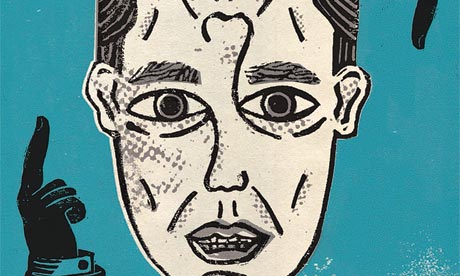
You know that feeling where you experience an emotion, but you don't have a word to describe it, so you resort to awkward phrases such as "You know that feeling" instead? If so, you'll be pleased to learn about The Emotionary, a new website dedicated to finding names for those feelings that don't yet have one. Thus, for example, "emptication": the "sad, useless triumph of getting what you want, long after you've accepted you're not going to get it, and no longer want it". Or "incredulation", the surprise when something you've been dreading goes unbelievably well.
This column has mused previously on the conundrum of emotions that don't translate well between languages (such as the Welsh "hiraeth", a kind of "homesickness tinged with grief or sadness over the lost or departed"). But those feel like one-offs, curiosities at the edge of language. The Emotionary raises the unsettling thought that our daily lives might be full of experiences we never talk about, simply because we lack the words.
The site, created by the American actor Eden Sher, is plainly tongue in cheek. ("Floptimism": the futile encouragement you offer someone even though you realise they'll probably fail.) But it's a joke with a point. "We need words to label our otherwise incomprehensible feelings, in order to understand each other and relate to one another," Sher argues on the site. Research into the effects of meditation suggests that even naming your emotions to yourself – never mind discussing them with others – can partially release you from their grip. Moreover, the problem of unnamed feelings is a reminder of how baffled psychologists remain about what an emotion actually is. Some basic ones seem to be universal. But who gets to define the boundaries between them? What role does culture play? Can there really be new, distinctively modern emotions, or are we just relabelling and reinterpreting the old ones?
If you're tempted to conclude that none of this matters, look no further than the current barroom brawl over the "bible" of psychiatry, the Diagnostic And Statistical Manual, which sets out the symptoms one must exhibit to qualify as depressed, autistic, a narcissist and so forth. Deep down, it's a fight about the power of labels. Does a given subjective experience count as everyday sadness, as natural grief in the wake of a bereavement, or as a depressive disorder? The answer determines who gets medicated, who's encouraged to think of themselves as having a problem, and who makes money from treatment. The DSM's critics recommend a more biological approach – measuring molecules rather than symptoms, essentially – and they sometimes talk as if that might let us leap over the naming problem altogether. It won't. Someone, or a committee of someones, always has to decide what counts as a problematic emotion, thought or behaviour, and what doesn't. How you label people's experiences really matters.
Outside psychiatry, of course, the naming of emotions is a rather less weighty affair. Still, it makes you wonder: how much of our experience never gets discussed at all with our partners or friends – or even privately reflected upon, inside our minds – because we haven't named it? To borrow a word from the Emotionary, it's all very conflightening (confusing, yet enlightening) indeed.
oliver.burkeman@theguardian.com
Follow Oliver on Twitter.

